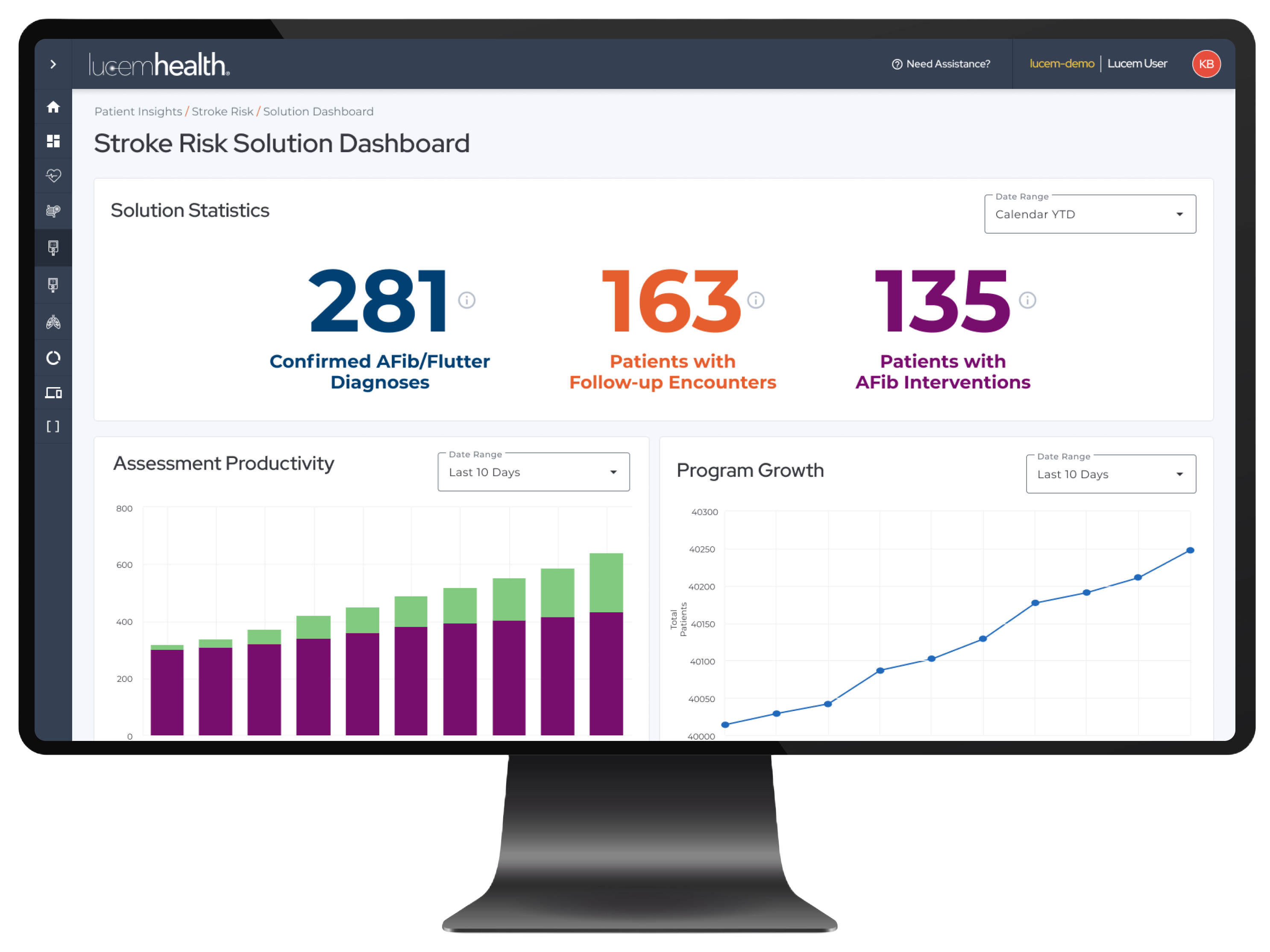
Advanced AFib-stroke detection
Reveal for Stroke analyzes existing ECG and electronic health record (EHR) data to provide personalized stroke-risk assessment for adults aged 22 and older – identifying individuals with undiagnosed AFib or Atrial Flutter and calculating their CHA2DS2-VASc score for stroke risk.

Advanced AFib-Stroke Detection
Reveal for Stroke analyzes existing ECG and electronic health record (EHR) data to provide personalized stroke-risk assessment for adults aged 22 and older – identifying individuals with undiagnosed AFib or Atrial Flutter and calculating their CHA2DS2-VASc score for stroke risk.
Deliver more proactive stroke care
Reveal for Stroke creates new opportunities and efficiencies for healthcare organizations when accelerating identification of patients at higher risk for AFib-related stroke.


Deliver more proactive stroke care
Reveal for Stroke creates new opportunities and efficiencies for healthcare organizations when accelerating identification of patients at higher risk for AFib-related stroke.
Condense your work streams
Reveal assists healthcare providers in making well-timed and informed decisions by presenting an FDA-cleared AccurECGTM analysis, CHA2DS2-VASc stroke risk score, and the HAS-BLED score for major bleeding risk in one simplified view.
Screening ECGs
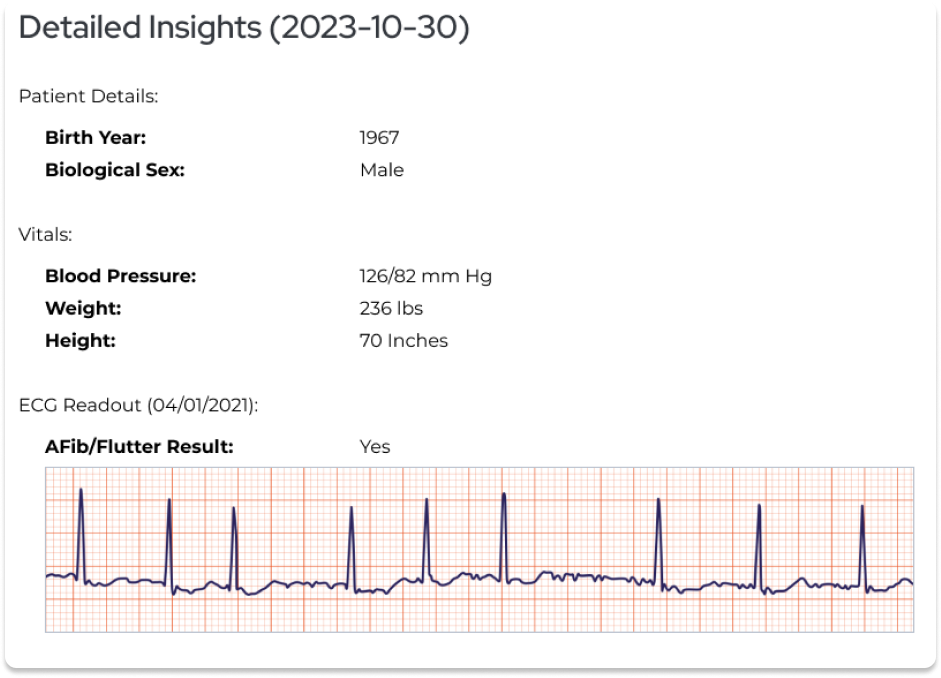
Patient Chart
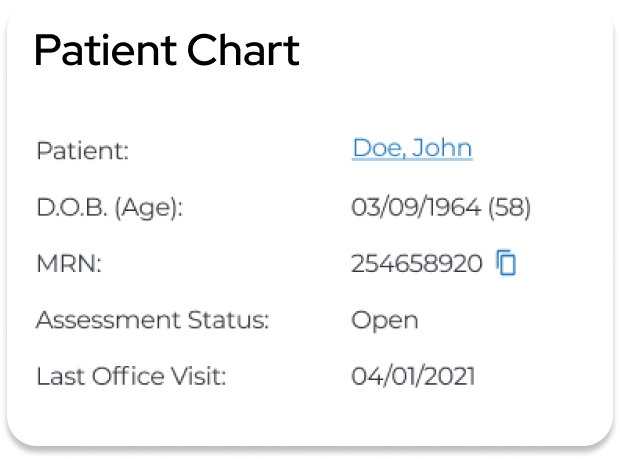
CHA2DS2-VASc
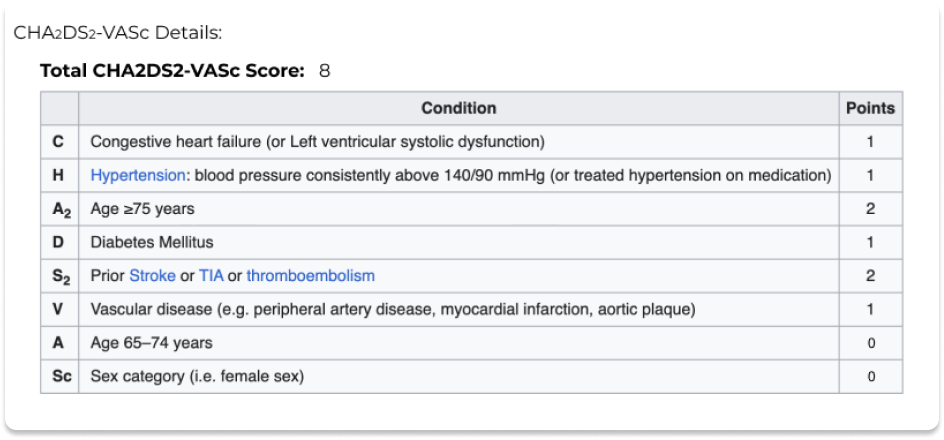
Identified patients
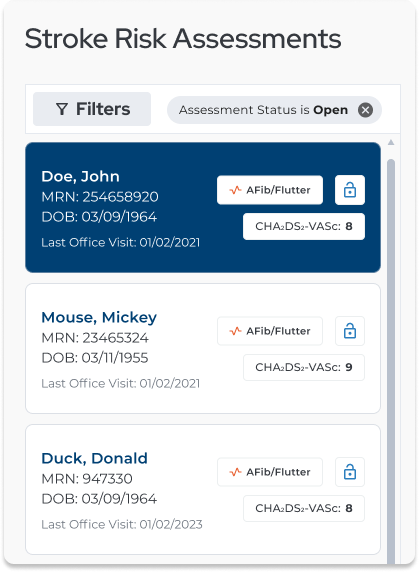
Condense your work streams
Reveal assists healthcare providers in making well-timed and informed decisions by presenting an FDA-cleared AccurECGTM analysis, CHA2DS2-VASc stroke risk score, and the HAS-BLED score for major bleeding risk in one simplified view.
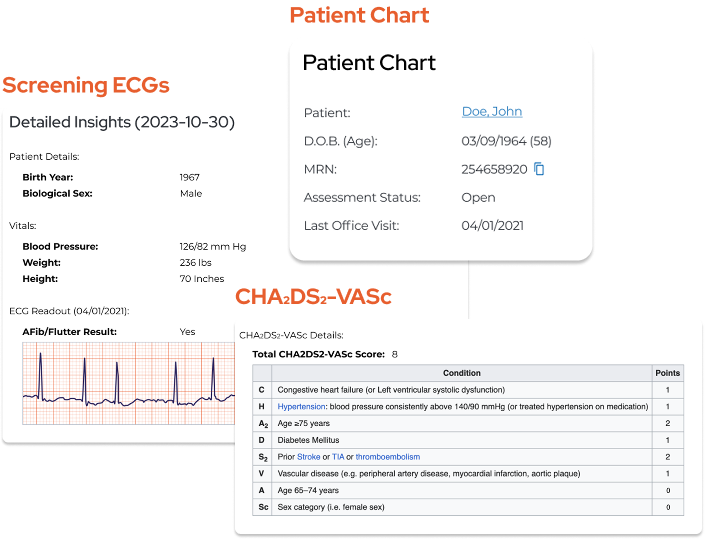
Identified patients

Real return from targeted screening
An example scenario using Reveal for Stroke to analyze 100,000 screening ECGs in one year.
Real return from targeted screening
An example scenario using Reveal for Stroke to analyze 100,000 screening ECGs in one year.
The Impact of AFib-related stroke
According to the American Heart Association, AFib (atrial fibrillation) affects 2.7-6.1 million people in the US. AFib significantly increases the likelihood of having a stroke, with AFib-related strokes accounting for approximately 15-20% of all ischemic strokes.
By identifying patients at risk for stroke early on, the long-term use of blood thinners can reduce negative outcomes by 60-70%.
Despite this, studies consistently show that at least 1 in 5 cases of AFib go undocumented in clinical practice, which means many patients are not included in stroke prevention programs. This issue highlights the necessity for improved detection and management of AFib to ensure that all individuals at risk are identified and provided with appropriate care to minimize the potential for adverse health outcomes.
The Impact of AFib-related stroke
According to the American Heart Association, AFib (atrial fibrillation) affects 2.7-6.1 million people in the US. AFib significantly increases the likelihood of having a stroke, with AFib-related strokes accounting for approximately 15-20% of all ischemic strokes.
By identifying patients at risk for stroke early on, the long-term use of blood thinners can reduce negative outcomes by 60-70%.
Despite this, studies consistently show that at least 1 in 5 cases of AFib go undocumented in clinical practice, which means many patients are not included in stroke prevention programs. This issue highlights the necessity for improved detection and management of AFib to ensure that all individuals at risk are identified and provided with appropriate care to minimize the potential for adverse health outcomes.
From Partners You Can Trust
Lucem Health partnered with AccurKardia to develop the Reveal for Stroke solution.

About AccurKardia
AccurKardia is an ECG-led diagnostics company that enables world-class cardiac care in a connected world. Their proprietary AccurECGTM Analysis System is an FDA-cleared and HIPAA-compliant, device-agnostic, fully automated ECG interpretation cloud-based software solution. AccurECGTM can detect 13 different arrhythmias with exceptional accuracy, thus helping healthcare organizations select enriched sub-populations and more consistently identify and prioritize patients for interventions for multiple cardiovascular conditions to halt or prevent serious complications from the onset of disease.


